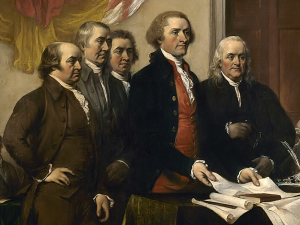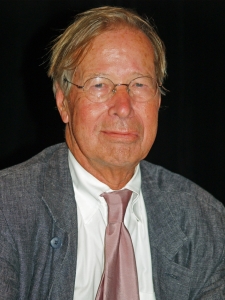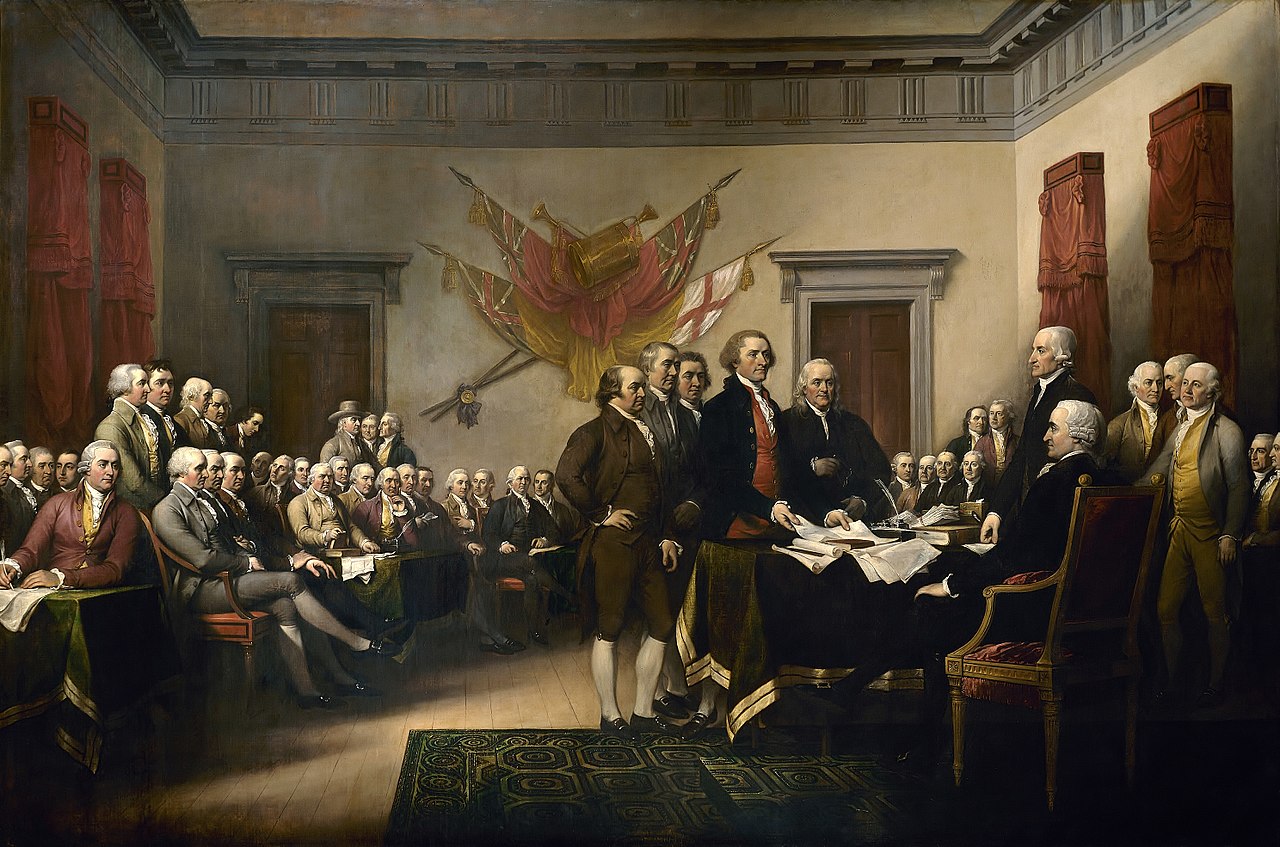The day that they killed him, someone said to me, “Son
The age of the Antichrist has just only begun”
Air Force One coming in through the gate
Johnson sworn in at 2:38
Let me know when you decide to thrown in the towel
It is what it is, and it’s murder most foul
What’s new, pussycat?
What’d I say?
I said the soul of a nation been torn away
And it’s beginning to go into a slow decay
And that it’s 36 hours past Judgment Day
Bob Dylan ‘Murder Most Foul’
As I have previously argued, the death of Ruth Bader Ginsburg is the death knell on a long liberal tradition of American judges, including William O. Douglas, the Irish-American William Brennan, and Harry Blackmun. More recently we have had John Paul Stevens, and perhaps David Souter, who went on a voyage from straight conservatism to moderate liberalism, can be added to that list.
This sad passing should be of grave concern to the world, as the composition of the U.S. Supreme Court is more important than any President. It has finally been subsumed by the dangerous ideologies of neoliberalism, religious fundamentalism and hatred and exclusion of the other.
At one level, abortion is the canary in mine shaft, which may be distracting from other equally important issues. America has had to contend with threats to the seminal judgment of Roe v. Wade before, when Ronald Reagan appointed Sandra Day O’Connor as the first female judge of the Supreme Court. She appeared to be an ardent anti-abortionist, but flipped to some extent in Planned Parenthood v Casey (1993). I don’t think Trump has made the same mistake – much to my chagrin – with Amy Coney Barrett.
Let us be clear. The appointment of a woman simply because she is a woman is not a cause for celebration. It is another Populist gesture from a Trump Presidency designed to deflect from criticism of her judicial philosophy. She is deeply conservative and an adherent of an historical and literalist approach to the interpretation of the U.S. Constitution, which is aligned with deep-seated religious and political fundamentalism.
As an ardent Catholic boasting seven children, of whom two are adopted, it is fair to surmise that she may have reservations about contraception. Her support of the ownership, possession and use of handguns – even for non-violent felons in Kanter v Barr (2019) – is conditioned by an historical approach to interpreting the Constitution. This she has inherited from the recently deceased Supreme Court judge Anthony J. Scalia – affectionately known to liberals as Tony the Phoney – under whom she clerked. ‘His judicial philosophy is mine too,’ she said.

Scalia with President Reagan in 1986.
Justice Harry Blackmun, (the author of the majority decision in Roe v Wade) realised this might happen in Planned Parenthood (1973); the light flickering at the end of his moving judgment. That light is now extinguished.
Of significant concern to all non-nationals, she also voted as circuit court federal judge for Trump’s hard line legislation on Green Cards, and will no doubt also expand the protection of religious rights, conditioned by historicism and literalism. Gay rights groups have also been very troubled by her views. Such ‘deviant’ preferences were contrary to public morality in 1789 after all, as was the presence of inferior races.
We have entered a dark era dominated by the religious right, involving literal and historical interpretation of the U.S. Constitution. A return to eighteenth century values is upon us, including the fire and brimstone of the Old Testament, neglecting to remember that Thomas Jefferson was a deist, if that. Let’s not forget that the United States required a Civil War to end the ‘peculiar institution’ of slavery that was not even mentioned in that document, apart from in the three-fifths clause that represented a African-American slaves as three-fifths of a white person for electoral purposes, in order to maintain a balance between slave and non-slave owning states.
Originalism
So what is the evangelical Christian conditioning of her mentors?
- Old Originalism or Original Intent dates from the 1980’s scholarship of Robert Bork, and is linked to the intention of the Founding Fathers, or a subtle shift to meet objections; the ratifiers of the Constitution.
- New Originalism (if it can be termed thus) or Original Meaning Originalism or Original Public Meaning focuses on the original public meaning of the Constitution. Which includes the unmistakable whiteness of the signatories. This leaves a measure of indeterminacy and thus discretion to future generations, but is really a sleight of hand designed to conceal much of the above.
- A further distinction has been drawn between Original Meaning and Original Expected Application. The argument is that whereas Original Expected Application binds us to the intention of the Founding Fathers, Original Meaning gives us a text which we show attention and fidelity to, and which provides a blueprint for future generations
In essence, the original version of Originalism (now termed inter alia Old Originalism) contended that in order to interpret the Constitution, judges should search for the intention of the Founding Fathers. The view was a rejection of what was perceived as the judicial activism of the Warren and Burger courts, and was initiated by Reagan’s Attorney General Edwin Meese, who argued for ‘Original Intention’ to put decisions back on the proper path of reflecting the views of the Founding Fathers, and respecting ‘democratic’ principles.
Thus, it is important to stress that from the outset Originalism is associated with neoliberal or even neoconservative political principles, not a middle ground Burkean conservative approach.
There has also been a subtle nuancing from Original Intent to Original Understanding or Original Meaning, to deal with the objection that it was the ratifiers’, not the framers’ intention, that was important, but even at the time there were powerful intellectual objections.
It has been repeatedly argued that we cannot access the mental states of the Founding Fathers or ratifiers. They might have had conflicting mental states, and their intentions are simply unknowable. Further, and crucially, it seems to me, the Founding Fathers or ratifiers had no particular foresight as to the state affairs and social circumstances that would emerge after they had departed, while the Constitution was presumably designed to cope with the exigencies of new circumstances.

Founding Fathers, John Adams, Thomas Jefferson, Benjamin Franklin, Roger Sherman, and Robert Livingston.
Original Meaning Originalism
Jefferson Powell has added a further criticism, which is that the Founding Fathers themselves did not believe that looking to their intention was an appropriate approach, and that it was the public words of the text that were binding.
There is another powerful and all-pervasive intellectual objection to Original Intent, which is a dominant theme of this article: even if we are certain of the precise intentions of the Founding Fathers and ratifiers, and even if we knew they intended to bind us to their settled historical meaning, why should we care?
Why, in substance, should we be bound by the dead hand of history?
In reaction to these criticisms the Original Intent movement shifted its position. Spurred on by Justice Scalia and members of Reagan’s Justice Department, the movement began to argue it was not the intention of the Founding Fathers or ratifiers that was important, but the publicly shared meanings of the text. Or at least those shared in 1789.
The New Originalism (or ‘Original Meaning Originalism’) has as its core idea that the meaning of the constitution is the original public meaning of the document, or its conventional semantic meaning, including the meaning as changed by amendments. Such theorists then began to look at dictionaries and documents of public record to ascertain what citizen views were on constitutional matters at the time. They believed that such sources would discipline courts from engaging in judicial activism.
A Constitution Falls to be Interpreted by Successive Generations.
Barnett has argued that the text legitimates the use of the State’s coercive power, and legitimates judicial activism. That ultimately it defers to a theory of popular sovereignty in that the people gave their permission to that written text (which in this jurisdiction they extend frequently by referendum), with the government acting as agents of the people. This is correct, but it is the will of the chosen few, interpreted through the prism of Old Testament values and emergent racism.
Jack Balkin, a moderate liberal, defines Original Meaning as a commitment to the fidelity of the text and the principles of the text, which must mean different things to each successive generation; as words themselves shift in meaning over time, and the nuances of the abstract terms and vague clauses of a constitutional text shift and change.
He argues for a form of redemptive constitutionalism through the passage of history, where the open-ended language of the constitution delegates the application of terms to future interpreters, arguing that,
The whole purpose of a constitutions cannot be simply to forestall political judgements by later generations on important issues of justice, to preserve past practices of social custom or judgements of political morality, or to freeze existing assessments of rights in time. When we view these open ended rights provisions together with the more rule-like structural features of constitutions, we can see that they serve a somewhat different goal. They are designed to channel and discipline future political judgements not forestall it.
Balkin asks the question: what do abstract provisions in the constitutional text do? Are they designed only to limit future generations, or are they also designed to delegate the articulation and implementation of important constitutional principles?
Balkin later expands on the constraints on political judgement imposed by the text, but cautions against freezing political judgments at a fixed position in time. He contends that the constitution is an aspirational document and that the position of those such as Justice Scalia – who claim we are constrained by the original intent of framers or enacters – is a ‘narrative of decline.’ A “decline” has lately turned into a slide.
In contrast, Balkin argues that principles existing and embedded in the Constitution can be re-interpreted by successive generations to confront contemporary issues. Thus he argues that the class clause in the constitution can protect the right of homosexuals, even if no one at the time of the enactment approved of homosexuality.
Barret’s views on gays, immigrants and abortion suggest she thinks otherwise.
Dworkin
The late Ronald Dworkin, has written eloquently, about historicism, particularly in response to the nomination of Judge Robert Bork to the Supreme Court, and the publication of Bork’s Tempting of America. In assessing the legal intentions of the framers Dworkin argues:
They intended to commit the nation to abstract principles of political morality about speech and punishment and equality, for example. They also had a variety of more concrete convictions about the correct application of these abstract principles to particular issues. If contemporary judges think their concrete convictions were in conflict with their abstract ones, because they did not reach the correct conclusions about the effect of their own principles, then the judges have a choice to make. It is unhelpful to tell them to follow the framers’ intentions. They need to know what legal intentions – at how general a level of abstraction – and why. So Bork and others who support the original understanding thesis must supply an independent normative theory – a particular political conception of constitutional democracy – to answer that need. That normative theory must justify not only a general attitude of deference, but also what I shall call an interpretative schema: a particular account of how different levels of the framers’ convictions and expectations contribute to concrete judicial decisions.

Ronald Dworkin
Dworkin elaborates that the farmers’ intent can be viewed on levels of generality and that we must seek to ‘disentangle the principle they enacted from their convictions about its proper application in order to discover the political content of their decisions.’
He expands on that by saying that Bork uses the framers’ intent inconsistently, and at different levels of generality; in a reductive fashion and in a very strict sense for the cruel and unusual punishment clause of the Eight Amendment (to permit capital punishment); but in a broader sense for the principle of equality (to meet the future but then uncontemplated need of outlawing racial desegregation).
Dworkin concludes that:
There is nothing abstruse or even unfamiliar in the notion that the Constitution lays down abstract principles whose dimensions and application are inherently controversial, that judges have the responsibility to interpret these abstract principles in a way that fits, dignifies and improves our political history.
Justice Brennan
On retirement Justice William J. Brennan argued against Original Intent on a number of grounds. He noted that the ‘proponents of this facile historicism justify it as a depoliticization of the judiciary,’ but ‘the political underpinning of such a choice should not escape notice,’ and that a ‘position that upholds constitutional claims only if they were within the specific contemplation of the framers in effect establishes a presumption of resolving textual ambiguity against the claim of constitutional right.’
Brennan further argues, apropos the U.S. Constitution, but of equal application to the Irish Constitution, a constitution is not just a majoritarian document, but embodies substantive value choices that are placed beyond the legislature. Contemporary courts should abide by this duty in modern circumstances.
End of Days
What Amy Coney Barret’s appointment means is that the liberal academic, political and legal agenda has lost the argument, and the Bible Belt is in the box seat. It is game over in the U.S. Supreme Court, and the interpretation of texts will now be literal and historical.
Expect decisions that are pro-gun ownership, anti-abortion, anti-gay rights, anti-health care and above all a reinstitution of Christian evangelical rights. People of colour and migrants will be excluded as unworthy to the clean and pure. It is an exclusionary and intellectually baseless approach, but it is running America and most of the rest of us by extension.
Above the duty of the court is to keep the chosen few happy and rich. A quote from Orson Welles’s ‘The Third Man’ captures the sentiment:
If I offered you twenty thousand pounds for every dot that stopped, would you really, old man, tell me to keep my money, or would you calculate how many dots you could afford to spare? Free of income tax, old man. Free of income tax – the only way you can save money nowadays.
People are seen as insignificant dots, and objects of exploitation for the elect.




